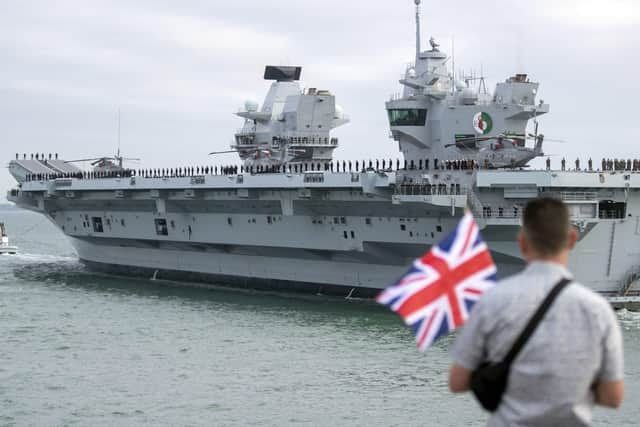Why what happens in the South China Sea matters to the UK - Laure Beaufils
And it’s not just the Indo-Pacific in general terms. What happens in the South China Sea matters to the UK. It does so because freedom of navigation is essential. Yes it is essential to our security and prosperity. But it is essential as a cornerstone of international maritime law.
We have a collective responsibility to ensure that the South China Sea is not a testing ground for reckless behaviour.
Advertisement
Hide AdAdvertisement
Hide AdThe consequences of escalation and crisis in the South China Sea would have implications for us all – including, but not limited to, major risks to global economic stability.


Earlier this year, we published our Integrated Review Refresh – a comprehensive strategy that reflects on the intensification of competition, the great pace of geopolitical change, an increasingly volatile and contested world and our place within that.
Our conclusion of the Review is that those who believe in the principles of openness, good governance, respect for sovereignty and respect for international law must do more to build our resilience and out-cooperate and out-compete those driving instability.
As such, the UK will take a more active and activist posture on the world stage. We will proudly and confidently play our part to support a free and open Indo-Pacific.
Advertisement
Hide AdAdvertisement
Hide AdThis begins by standing up for what we believe in. We stand up for international law, the international law-based maritime order, including the UN Convention on the Law of the Sea (UNCLOS) – something that is frequently reinforced by our Ministers in their public speeches.
The Minister for Indo-Pacific reiterated the UK’s unwavering support for UNCLOS on its 40th anniversary at the South China Sea International conference last year. The UK will continue to demonstrate its support and stand up for the principles of sovereignty, territorial integrity and non-aggression. We will continue to oppose any action that raises tensions or the risk of miscalculation. Unashamedly. Where this involves calling out actions that go counter these principles and that are dangerous, we do so.
We believe that building closer bilateral, mini-lateral and multi-lateral defence and security partnerships with regional partners will be key to support peace and stability throughout the region.
Indeed - alliances and their cohesiveness are key. So that those who threaten, coerce, intimidate or use force feel the unity and the might of those who uphold the purposes and principles of the UN Charter and abstain from said threats, coercion, intimidation, or the use of force.
Advertisement
Hide AdAdvertisement
Hide AdWe are already building these alliances through landmark agreements and partnerships including AUKUS, with the US and Australia, and the Global Combat Air Programme with Japan and Italy. We firmly believe that these not only show our resolve, but also have a stabilising effect in the region.
An adapted version of a speech delivered by Laure Beaufils, the British Ambassador to the Philippines and Palau, at the 7th anniversary of the 2016 Arbitral Award in the Philippines.